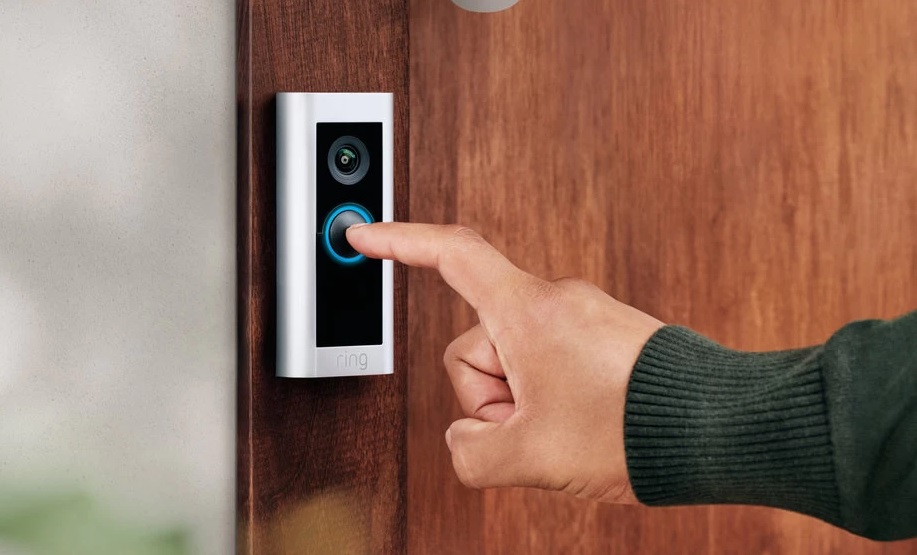Ring now lets you see when cops ask for security cam video
Police requests for video will be visible to all

Starting next week, Ring is making a big change to its Neighbors app and its partnership with law enforcement agencies that should help ensure greater transparency with what is being asked.
Beginning the week of June 7, Ring will phase out its existing system for one where any request by a police or fire department will be publicly posted on the Neighbors app. It will then be up to individual Ring owners to decide if they want to share their video.
- Best video doorbells
- The best security cameras
- Plus: Facebook extends Trump's 'indefinite' ban to 2 years
Under the existing system, if a law enforcement agency wanted to review footage from Ring owners' cameras — which include video doorbells and home security cameras — they would submit a request to Ring, which would then pass along the request to Ring owners in the vicinity of the incident. If those owners chose to participate, then law enforcement would then be able to view footage from their cameras.
However, this system has come under a lot of scrutiny as the program has grown to encompass more than 2,000 agencies around the U.S. (You can see which agencies have partnered with Ring on this map.) Ring's map shows the number of requests sent over the past quarter, but a number of privacy groups have criticized this partnership, saying that it promotes a police-like surveillance state. Last summer, the program came under renewed scrutiny following a Los Angeles Police Department request for footage related to protests following the murder of George Floyd last summer.
Under the new system, any request made by a government agency will be publicly announced in the Neighbors app as a “Request for Assistance” Post. According to Ring, "each post must include a valid case number and agency contact information, be limited to a 12-hour timeframe, and only encompass an area between 0.025 and .5 miles."
According to Ring's guidelines, once a request for Assistance post is published, it cannot be deleted, "cannot be used to gather information about lawful activities, such as protests," and must contain "information referencing an active investigation, specifically, the type of incident being investigated."
Should a Ring user choose to share footage from their camera(s), they can then click on a link in the post to share their video privately or to contact the agency directly. Ring users can also opt out of seeing these posts, as they have been able to opt out of receiving requests under the previous system.
Sign up to get the BEST of Tom's Guide direct to your inbox.
Get instant access to breaking news, the hottest reviews, great deals and helpful tips.
Pam Dixon, the founder and executive director of the World Privacy Forum, said she was "extremely pleased" by the changes. "This particular group of changes is a public good," she said. "It puts the people who own the Rings back in control, and that’s the way it should be."
The World Privacy Forum was one of several groups contacted by Ring while the company was working through changes to its policies. Dixon said that, along with end-to-end encryption, which Ring implemented earlier this year, the transparency of the new policy was key, as was getting Ring "out of the business of sharing data."
It's a bit of a change from Ring's previous system, and though the new policy is likely to still have its detractors who say that Ring should not be partnering with law enforcement agencies at all, it should offer a better look into what's being requested.

Michael A. Prospero is the U.S. Editor-in-Chief for Tom’s Guide. He oversees all evergreen content and oversees the Homes, Smart Home, and Fitness/Wearables categories for the site. In his spare time, he also tests out the latest drones, electric scooters, and smart home gadgets, such as video doorbells. Before his tenure at Tom's Guide, he was the Reviews Editor for Laptop Magazine, a reporter at Fast Company, the Times of Trenton, and, many eons back, an intern at George magazine. He received his undergraduate degree from Boston College, where he worked on the campus newspaper The Heights, and then attended the Columbia University school of Journalism. When he’s not testing out the latest running watch, electric scooter, or skiing or training for a marathon, he’s probably using the latest sous vide machine, smoker, or pizza oven, to the delight — or chagrin — of his family.
